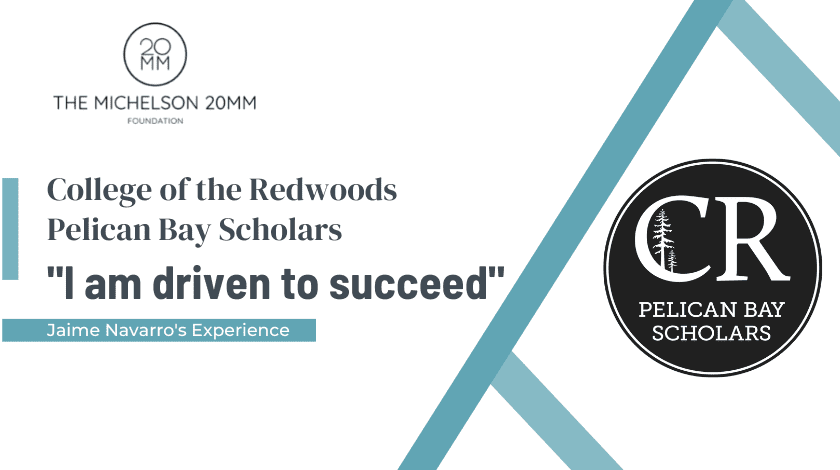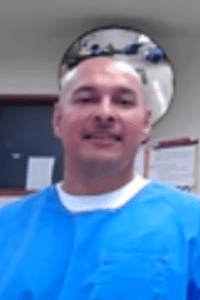News and Announcements
Postsecondary Education in Prison Is Inspiring Hope for Jaime Navarro, a Pelican Bay Scholar
Published Date
- December 13, 2022

 Priority enrollment for postsecondary educational programs in prison has often gone to justice-impacted scholars who are expecting a sooner release, which frequently meant lifers were not given the opportunity to pursue their education. Jaime Navarro, however, a student in the College of the Redwoods Pelican Bay Scholars Program, credits education as what may be the driving force behind hopefully receiving a release date in the future. He recently joined us for California’s Best Practices For Students Inside Prison, during which he shared his experience as a currently incarcerated scholar, and also sat down to share his thoughts on the importance of education in prison.
Priority enrollment for postsecondary educational programs in prison has often gone to justice-impacted scholars who are expecting a sooner release, which frequently meant lifers were not given the opportunity to pursue their education. Jaime Navarro, however, a student in the College of the Redwoods Pelican Bay Scholars Program, credits education as what may be the driving force behind hopefully receiving a release date in the future. He recently joined us for California’s Best Practices For Students Inside Prison, during which he shared his experience as a currently incarcerated scholar, and also sat down to share his thoughts on the importance of education in prison.
Highlighting the difficulty that individuals from marginalized communities and those in prison face while pursuing higher education, Jaime notes that “any help or assistance that can be provided to a prisoner or formerly incarcerated person is of great help. It’s because of higher education that many of the formerly incarcerated men and women are now able to establish projects and programs that are directed towards helping out prisoners.”
Drawing from his own experience, Jaime describes the College of the Redwoods program as “transformative” and necessary for a successful reintegration. This view, however, is largely due to the professors within the Pelican Bay Scholars Program, whom Jaime says “actually care to teach and help others grow despite their colorful past. The professors have always been truly committed to educating people who really want to learn, and without the professors the program would not be what it is.”
Due to the professors and the curriculum, Jaime has noticed that he and his fellow classmates have gained a greater sense of self awareness and now understand how their psychological, sociological, and economic historical development have led them to where they are today. “Given this newfound knowledge that many here are receiving, the prison culture has shifted towards positive programming,” Jaime shared. “Men are more interested in procuring self-help, a GED, and associate degree. This is how I’ve seen the prison culture at Pelican Bay because of education.”
As a lifer, Jaime has a unique perspective on the value of postsecondary education while incarcerated. “I’ve been able to structure myself in a way in which I’ve become responsible and accountable for my education. Taking one or more classes always comes with time management. If I do not create space or time to do what is expected from me, I know that I will fail,” Jaime noted. “Another benefit from having education has to be my ability to communicate with people, staff, and members of the parole board. Having acquired knowledge now helps me to present a better side of myself, and not the person I was before. In sum, I’ve gained confidence in my ability to learn and transmit what I’ve learned. I have more control and structure over my life and daily choices, and lastly I am driven to succeed.”
Jaime hopes to leverage his experience to inspire others in prison to do the same. He eagerly anticipates going in front of the parole board with the hope that they will also see the value of his education and grant him a release date. Upon release, Jaime looks forward to living “a happy and healthy life with my family, and to someday share my story with kids who are at risk of ending up in prison. I truly want to give back to my community, and in doing so bring awareness to what really happens when education is not taken seriously.”
If you would like to learn more about the Best Practices For Students In Prison, a recording of the event featuring formerly incarcerated scholars, Jaime, and Matthew Barnes is available on our YouTube channel.
Michelson 20MM is a private, nonprofit foundation seeking to accelerate progress towards a more just world through grantmaking, operating programs, and impact investing. Co-chaired and funded by Alya and Gary Michelson, Michelson 20MM is part of the Michelson Philanthropies network of foundations.
To sign up for our newsletter, click here.